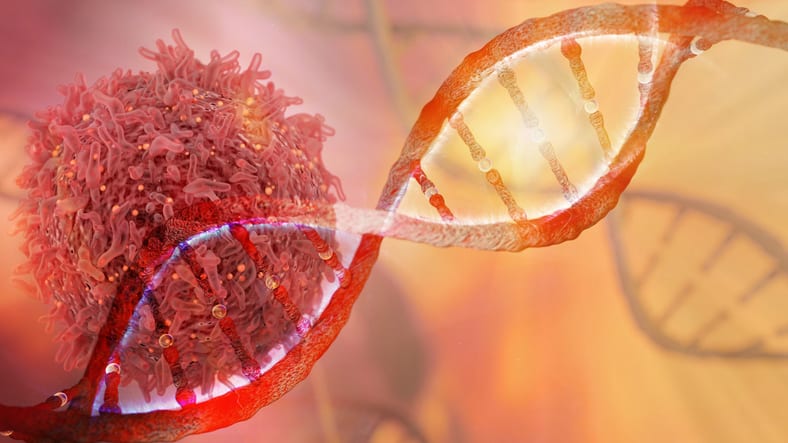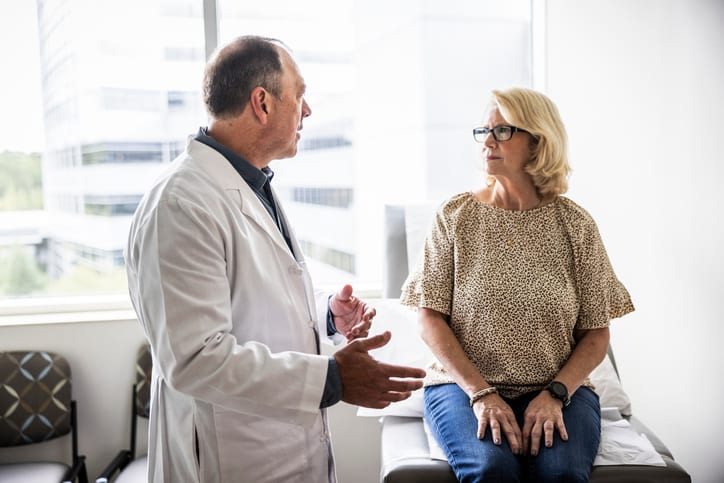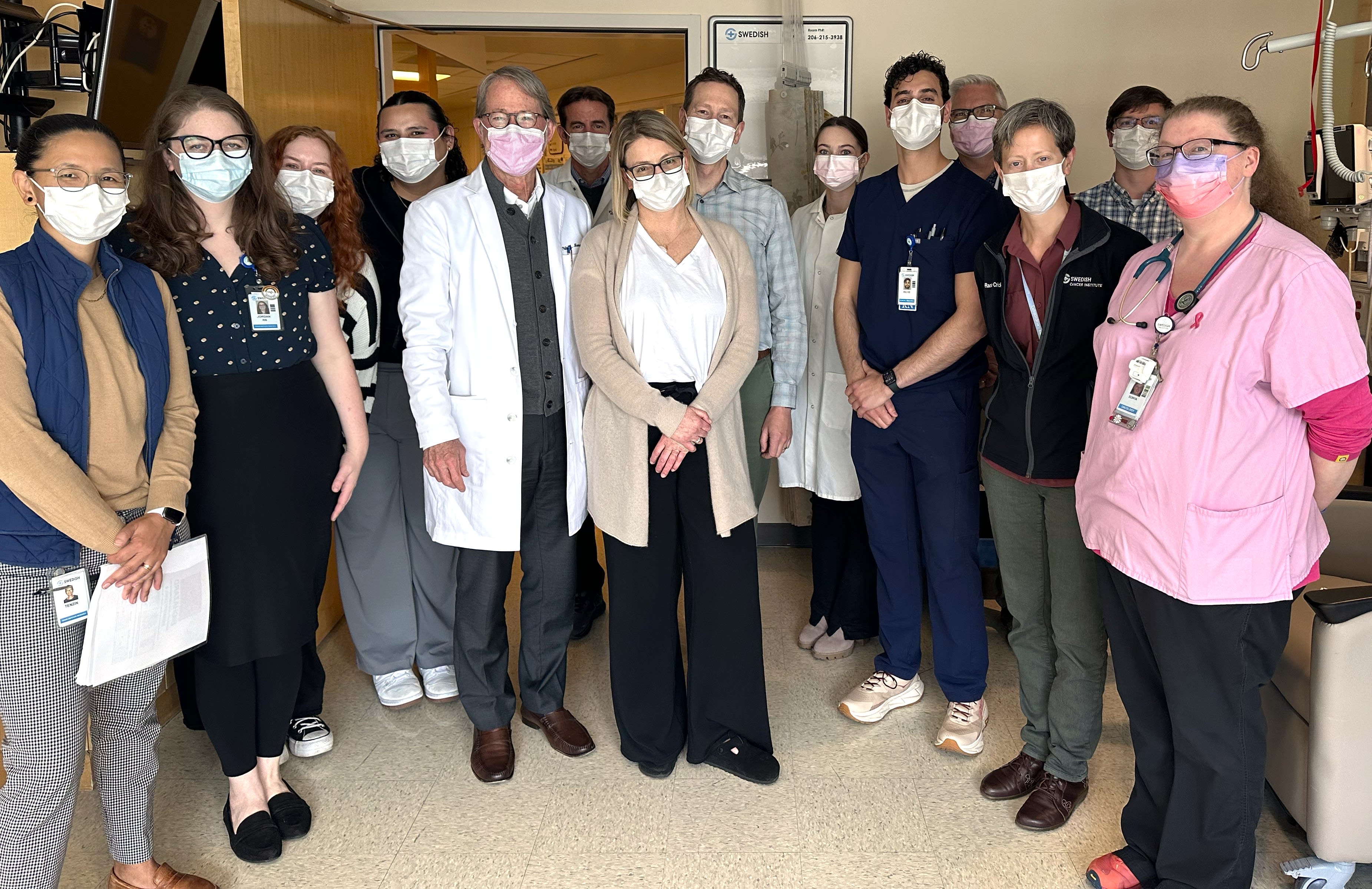Radiopharmaceuticals
Delivering Radiation Precisely Where It's Needed
Every cancer is different, and not all cancers respond to treatments in the same way. At the Providence Swedish Cancer Institute, our radiation oncologists use innovative radiopharmaceutical therapy when it offers the best approach for treating your specific type of cancer. It's another way to personalize your care, reduce side effects, and stay focused on the best possible outcomes.

Treatment Overview
Radiopharmaceutical therapy is a highly targeted treatment. Radioactive material is attached to targeting molecules and injected into the patient. The radiation is precisely delivered to the targeted tumor. Used for certain cancers, including prostate and liver, this therapy delivers radiation directly into the cancer cells, slowing cancer growth while helping protect healthy tissue nearby. This targeted approach may also help reduce side effects, such as fatigue and skin irritation, and lower the risk of long-term complications.
At the Providence Swedish Cancer Institute, we use radiopharmaceuticals to treat cancers that may not respond to other therapies, including prostate cancer, liver cancer, and neuroendocrine tumors. One example is Pluvicto, an FDA-approved radiopharmaceutical for prostate cancer that has shown such promising results: it's now being used earlier in the treatment process for some patients.
What to Expect
Radiopharmaceutical therapy delivers highly targeted cancer treatment while minimizing side effects. Your expert team at the Providence Swedish Cancer Institute guides you from preparation through follow-up care, so you always feel informed and supported. Here's what to expect from your radiopharmaceutical therapy.
Preparation starts with a consultation to confirm the best treatment approach. Your care team reviews your medical history, medications, and recent imaging scans. You may need additional blood tests to check kidney, liver, or bone marrow function. For certain therapies, you might be asked to temporarily stop specific medications. On the day of treatment, you receive detailed instructions, including any safety precautions to take after your session, and can ask any questions so you feel ready.
During treatment, you’ll receive the radiopharmaceutical as a pill, injection, or IV infusion. The session typically takes a few hours, including preparation, the treatment itself, and monitoring afterward. Your care team will be with you every step of the way to ensure your safety and comfort.
After treatment, you may need to follow temporary safety precautions to limit radiation exposure to others. Your care team will give you detailed instructions.
Radiopharmaceutical therapy targets cancer with precision, minimizing direct radiation exposure to healthy tissue. This can reduce side effects and improve outcomes, especially for cancers that have metastasized (spread) or are difficult to treat because of location.
While most patients tolerate the treatment well, potential side effects include mild nausea, temporary fatigue, and rare allergic reactions. Your care team discusses these with you in detail and helps you manage any discomfort.
Many patients benefit from supportive care services both during and after treatment. Our cancer rehabilitation program, led by a fellowship trained specialist, is one of the few programs nationwide to offer dedicated cancer rehabilitation. Depending on your needs, this might include physical or occupational therapy, speech therapy, or nutrition support.
We also offer holistic services like massage, acupuncture, art and music therapy, meditation, and nutrition classes.
Explore all our supportive care services.
Frequently Asked Questions
After radiopharmaceutical therapy, your body gives off small amounts of radiation for a short time. That’s why it's important to be mindful of close contact with others — especially infants, young children, and people who are pregnant — who may be more sensitive to radiation due to their developing bodies. Your care team will give you clear instructions about any temporary precautions to take at home, including how to safely interact with others while the radiation leaves your system.
The number of sessions depends on your specific cancer type and treatment plan. Some patients only need a single session, while others require multiple treatments over several weeks’ time. Your care team discusses your personalized plan in detail, so you know exactly what to expect well in advance of starting treatment.
Side effects vary based on the type of radiopharmaceutical therapy you receive and how your body responds. Common side effects may include fatigue, nausea, or mild discomfort at the injection site. Some treatments may cause temporary changes in blood counts, which your care team monitors closely. Most side effects are manageable, and your doctor provides medications or lifestyle tips to help you feel more comfortable.
Most patients can return to their usual activities after radiopharmaceutical therapy, but you may need to make temporary adjustments. Depending on the type of treatment, your care team might recommend avoiding close contact with others for a few days, which could affect work or social interactions. We will give you clear instructions on what is safe and help you plan your schedule to minimize disruptions.
Yes, radiopharmaceutical therapy is often part of a comprehensive cancer treatment plan. Your care team — including your radiation oncologist, medical oncologist, surgeon, and other specialists — works closely together to develop the best combination of treatments for you. Radiopharmaceutical therapy may be combined with surgery, chemotherapy, immunotherapy, or other targeted therapies to achieve the best outcome. Your doctors will explain how each treatment works together to give you the most effective care for your specific cancer.
The timing for seeing results varies depending on the type of cancer and radiopharmaceutical therapy you receive. In most cases, follow-up imaging or blood tests are scheduled a few weeks to months after treatment to assess how your cancer is responding. Your care team discusses your progress at regular follow-up visits and adjusts your care plan as needed.
Your treatment may impact your fertility, depending on the type of treatment and your individual plan. If you're concerned about fertility, our team will guide you through options, discuss the potential impacts of your specific treatment plan, and connect you with fertility preservation resources to help you make informed decisions about the future.
Radiopharmaceutical therapy can be a powerful option for treating certain cancers, including prostate cancer, neuroendocrine tumors, and liver tumors. It’s also used to target cancer that has spread to the bones. Your doctor will explain how this treatment works, why it’s recommended for you, and what to expect, making sure you fully understand your care plan. New radiopharmaceuticals are also being developed to treat other types of cancer, offering hope for more patients to benefit from this targeted approach in the future.
We provide a full range of supportive care services to support you during and after your cancer treatment. Some of these services include:
- Art therapists
- Cancer rehabilitation (onco-physiatry)
- Care coordinators
- Genetic counseling (cancer geneticist)
- Health educators
- Medical massage (edema, lymphedema management)
- Music therapist
- Naturopaths
- Nutritionists
- Oncology nurses
- Social workers
- Speech and language pathology
We can also help with finances, food, transportation, and other challenges for eligible patients through our patient assistance fund.
See the full list of supportive care services.
Note: Some services are provided by local partners and vary based on location. Please contact your clinic for more information.
News & Info From Our Experts



